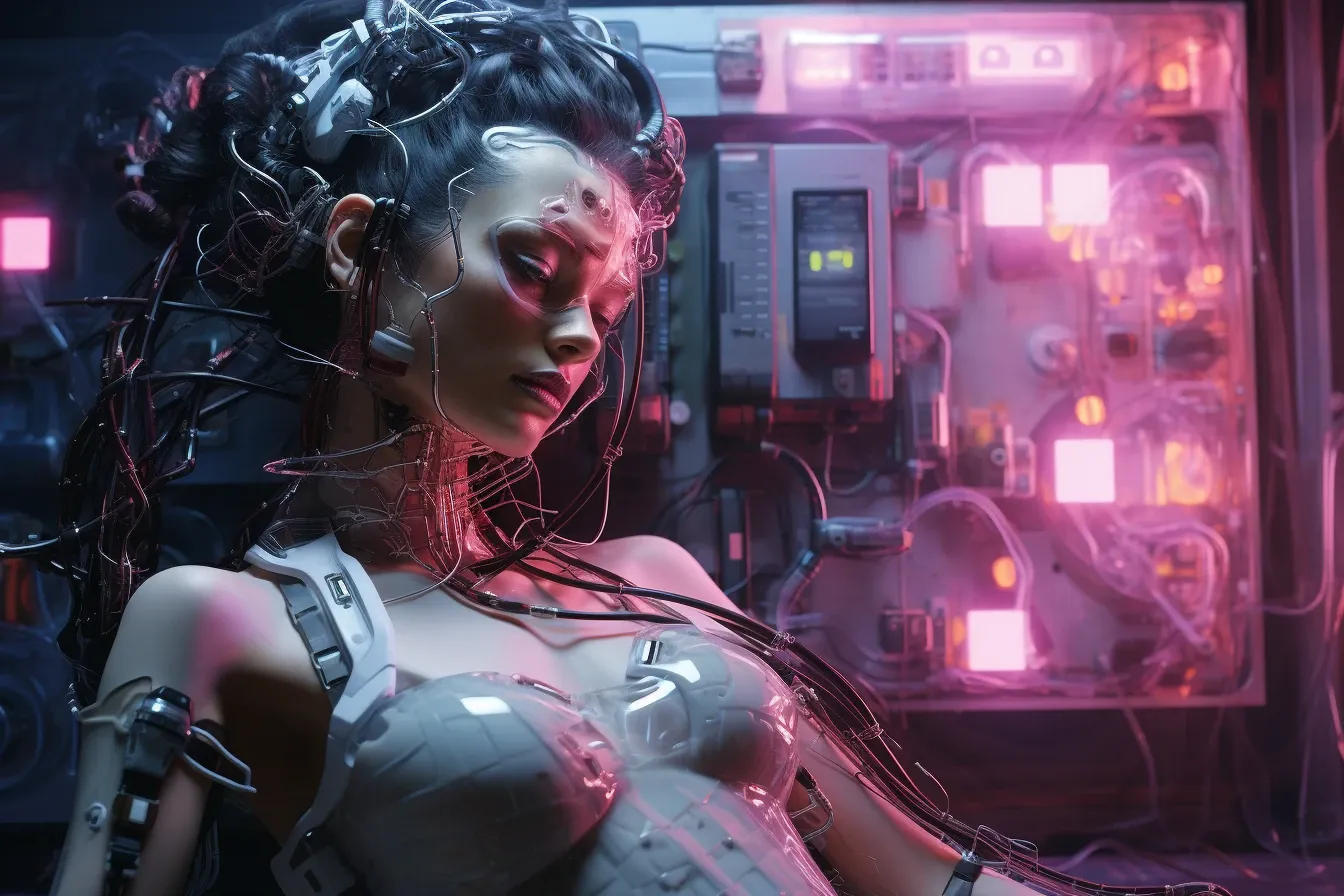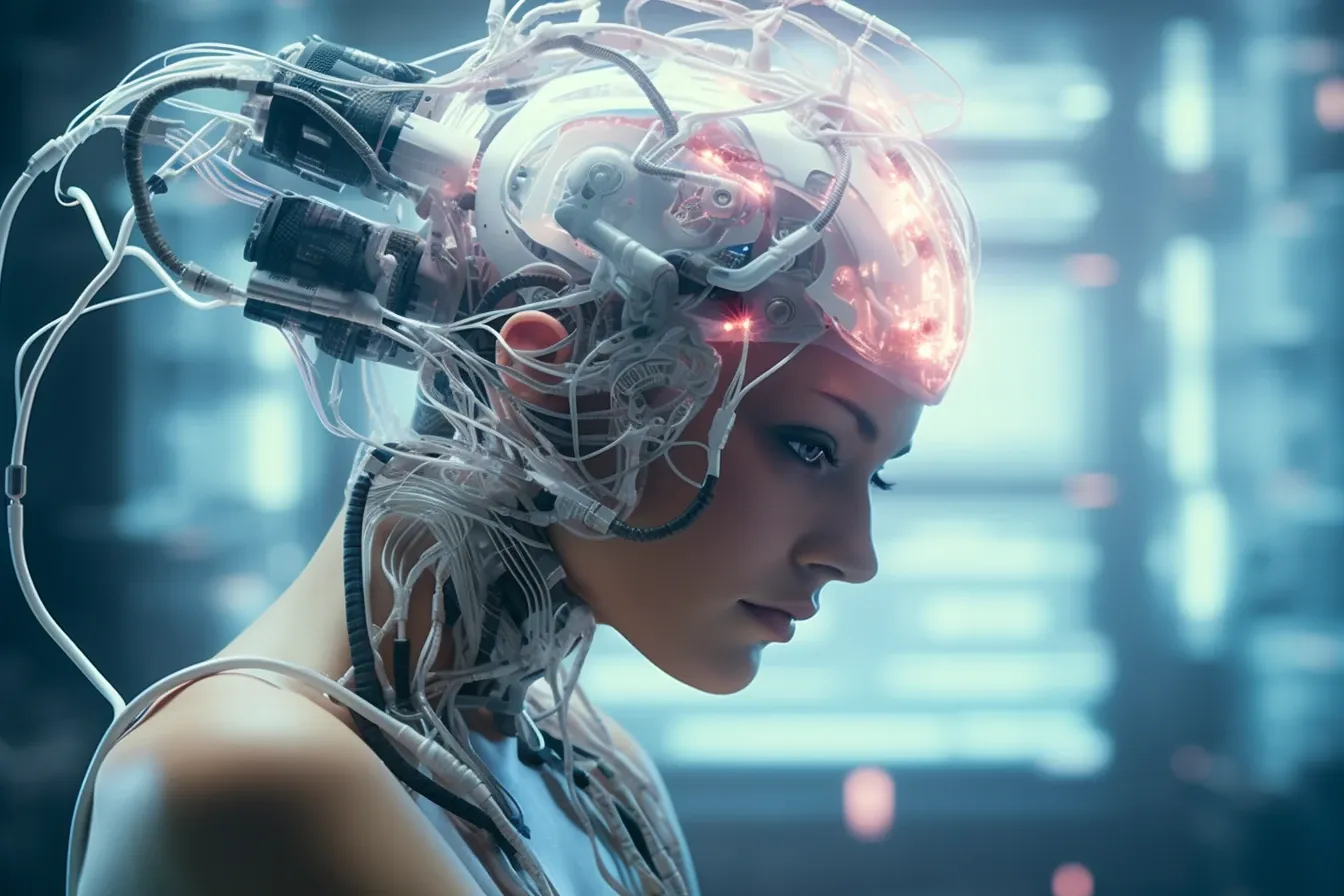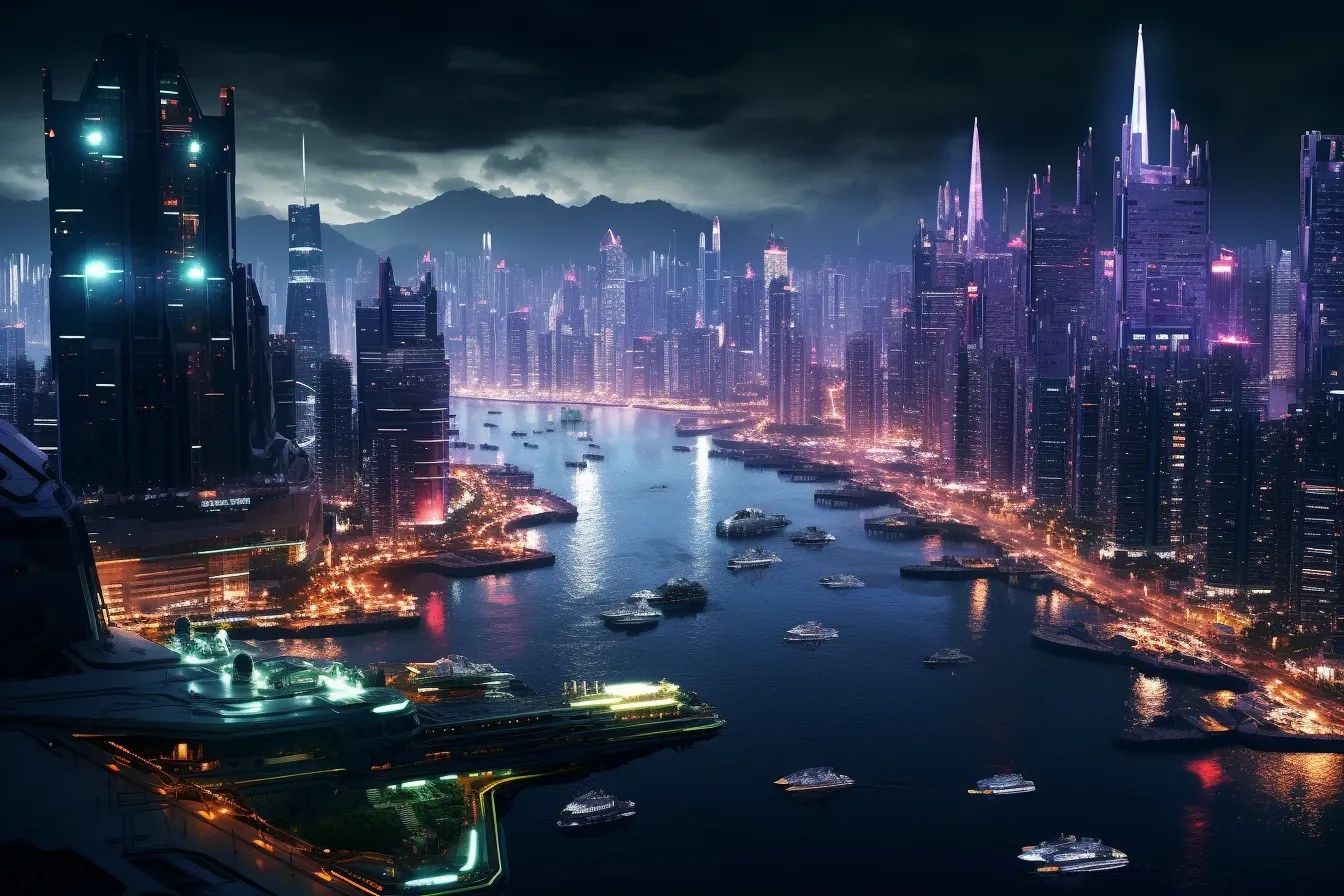Are Cyberpunk and Science Fiction dead?
In Science Fiction the plot is fairly linear, with characters defined and more or less recognizable in patterns. In Cyberpunk, linearity is broken, protagonist-situation relationships are complex and ambiguous.

A group of hackers, stoners, computer-crazed professionals, hallucinated writers, and survivors of West Coast culture created the fictional genre of cyberpunk, to tell a story of virtual reality, of divided, segregated, fragmented, disjointed identities, of a world of brands and a kingdom of data and information flows. Cyberpunk was and is a literature born out of friction with technology and science. It is a social and political fiction. It is, at least in part, a resistance to the global world, a political practice of no-global movements, and a new way of thinking about reality.
Authors like Philip K. Dick (Total Recall, Do Androids Dream of Electric Sheep) examined the relationships between drug culture and technology. Dick's work, in particular, often forces main characters to question what is real in a world where people and memories can be fabricated, as well as the morality of artificial intelligence. These ideas expanded into the late 1970s and early 1980s with comics and manga including Judge Dredd, Akira and Ghost in the Shell and soon moved to film with Blade Runner (an adaptation of Do Androids Dream of Electric Sheep). [here]
Science fiction may be defined as
Science Fiction is the literature of 'what is possible': Is it possible to implant a chip into someone's brain to completely control what they choose to do? Probably not right away, but in time, yes. Who knows? If Science Fiction is the literature of the possible, Cyberpunk can be considered the literature of transformation, of transition, of expansion and reduction: In short, of change. A change that is almost problematic.

Notable Cyberpunk/New Wave Sci-Fi authors
- Philip K. Dick (1928-1982)
- William Gibson (1948)
- Pat Cadigan (1953)
- James Tiptree, Jr. (1915-1987)
- Rudy Rucker (1947)
- Masamune Shirow (1961)
- John Shirley (1953)
- Lewis Shiner (1950)
- K. W. Jeter (1973)
- Roger Zelazny (1937-1995)
- John Brunner (1934-1995)
- J. G. Ballard (1930-2009)
- Philip José Farmer (1918-2009)
- Harlan Ellison (1934-2018)
- Bruce Sterling (1954)
Trying a comparison
To put it simply, in Science Fiction novel, once the space-time coordinates in which the story takes place, the plot is fairly linear, with characters defined and more or less recognizable in patterns that are familiar to the reader. In Cyberpunk, linearity is broken, protagonist-situation relationships are complex and ambiguous, and the physical and mental integrity of the characters undergoes
and cybernetic transplants; the universe is not scientific, but rather artificial, based on laws and rules that are often unknown and indefinable, and that always interfere with the will of humans.
Cyberpunk VS Science Fiction
Cyberpunk ventures into territories that traditional Science Fiction (if we exclude such masters as James G. Ballard and Philip K. Dick) was ill-equipped to explore.
Traditional Science Fiction was (and is) mainstream literature; Cyberpunk is often avant-garde literature, stylistic and formal experimentation, but also parody,
a taste for the absurd and paradoxical reversal, a sophisticated interplay of quotation - typically postmodern - and ambiguity of sense and meaning.
Popular Examples of Cyberpunk
- Blade Runner
- Akira
- Ghost in the Shell
- Johnny Mnemonic
- Judge Dredd
- The Matrix
- Total Recall
- Minority Report
- Altered Carbon
- Alita: Battle Angel

Is Cyberpunk Dead?
Cyberpunk is not dead; it survives on the Net and in some authors who have not given up exploring the fate of a society hybridized with technology and the mindset of intrusion. Intrusion into the head, the heart, the mind. However, Cyberpunk has changed, bastardized with the video game and, in some cases, lowered to the consumer genre. The true Cyberpunk cannot be a consumer genre, at least not entirely.
At the same time, the nature of Science Fiction has changed, from speculative literature to quite fantasy fiction. Science Fiction that invents and explains alternative myths and new constellations. And so from interstellar propulsion as a possibility and technological challenge, travel became magic and enchantment. That was certainly one possible reading, but certainly not the only one. And so it was with such speculative topics as nonhuman and artificial intelligence, the conquest and colonization of solar and extra-solar worlds, and time and inter-dimensional travel.
Is Science Fiction Dead?
Amazement at the most advanced scientific research and interpretation of technology has lost its force, creative power, and become a harmless fairy tale, almost a fable, with hypertechnology as a backdrop. Like the special effects of a blockbuster movie production, Science Fiction concepts and situations have become more or less sophisticated tricks. Today's technology has taken over what is possible, made it flat and spectacular, and robbed it of its true meaning, of its adventurous drive, of its meaning. Those who read real science fiction in the fifties and sixties are now all writers. They produce a superficial science fiction, overfed with TV stereotypes, and also too intrusive on the novel market.
May be Science Fiction is not dead, but the great game of scientific speculation is a bit shattered.
Bibliography
A range of influential works that explore the cyberpunk genre and its connections to science fiction. From classic novels to thought-provoking films, these works delve into the implications of technology on society, the blurring lines between reality and virtuality, and the philosophical questions surrounding identity and consciousness. Each entry provides valuable insights into the captivating world of cyberpunk and its enduring impact on the genre.
Neuromancer by William Gibson
- Is a cyberpunk novel that laid the foundation for the genre. Set in a dystopian future where the lines between virtual reality and reality blur, Gibson explores themes of artificial intelligence, hacking, and the consequences of technological advancements on society. The protagonist, Case, a washed-up computer hacker, delves into a high-stakes hacking job, leading readers through a thrilling adventure in a world governed by corporate power and cybernetic augmentation.
Blade Runner directed by Ridley Scott
- Annotation: "Blade Runner" is a groundbreaking science fiction film that exemplifies the cyberpunk aesthetic. Based on Philip K. Dick's novel "Do Androids Dream of Electric Sheep?", the movie explores the ethical dilemmas surrounding artificial intelligence and the nature of humanity. Set in a futuristic, dystopian Los Angeles, the film features stunning visuals and a thought-provoking narrative, raising questions about the implications of technology on identity and society.
Snow Crash by Neal Stephenson
- Annotation: "Snow Crash" is a cyberpunk novel that blends elements of virtual reality, linguistics, and ancient Sumerian mythology. The story follows Hiro Protagonist, a hacker and pizza delivery driver, as he navigates a post-cyberpocalyptic world where the internet has evolved into a vast virtual landscape. Stephenson's masterful storytelling and exploration of linguistic theory make this a must-read for cyberpunk enthusiasts.
Ghost in the Shell directed by Mamoru Oshii
- Is an influential anime film that delves into the philosophical aspects of cyberpunk and transhumanism. In a future where humans can enhance themselves with cybernetic implants, the story revolves around Major Motoko Kusanagi, a cyborg law enforcement officer, as she seeks to apprehend a notorious hacker known as the Puppet Master. The film raises profound questions about the nature of consciousness, identity, and the boundaries between humans and machines.
Ready Player One by Ernest Cline
- Is a science fiction novel set in a near-future world where society largely retreats into a virtual reality called the OASIS to escape the hardships of the real world. The story follows Wade Watts, a teenager on a quest to find a hidden Easter egg within the OASIS that promises vast riches and control over the virtual realm. Cline's novel expertly weaves pop culture references, gaming, and cyberpunk themes into an engaging and nostalgia-driven adventure.
Akira directed by Katsuhiro Otomo
- Is a classic cyberpunk anime film that showcases a dystopian Neo-Tokyo after the devastation caused by a mysterious psychic event. The story revolves around Kaneda and Tetsuo, members of a biker gang, as they become entangled in government experiments and burgeoning psychic powers. The film addresses themes of power, corruption, and the destructive potential of unchecked technological advancements.
Altered Carbon by Richard K. Morgan
- Richard K. Morgan presents a cyberpunk noir detective story in a world where human consciousness can be transferred between bodies, known as "sleeves." The novel follows Takeshi Kovacs, an ex-soldier turned private investigator, as he is hired to solve a wealthy man's apparent suicide. Morgan's work explores themes of identity, mortality, and the commodification of human existence in a technologically advanced future.
The Matrix directed by the Wachowski siblings
- Is a groundbreaking science fiction film that revolutionized the cyberpunk genre and popular culture. The story follows Neo, a computer hacker, as he discovers the truth about the simulated reality known as the Matrix and joins a rebellion against the machines that control humanity. The film's innovative visuals, philosophical themes, and action-packed plot have solidified its place as a cyberpunk and sci-fi classic.
Contact us
Project manager: Michael B. Morgan bmorganmichael@protonmail.com
Graphic design: Gregor Code ddcode@proton.me
Web developer: CZero
